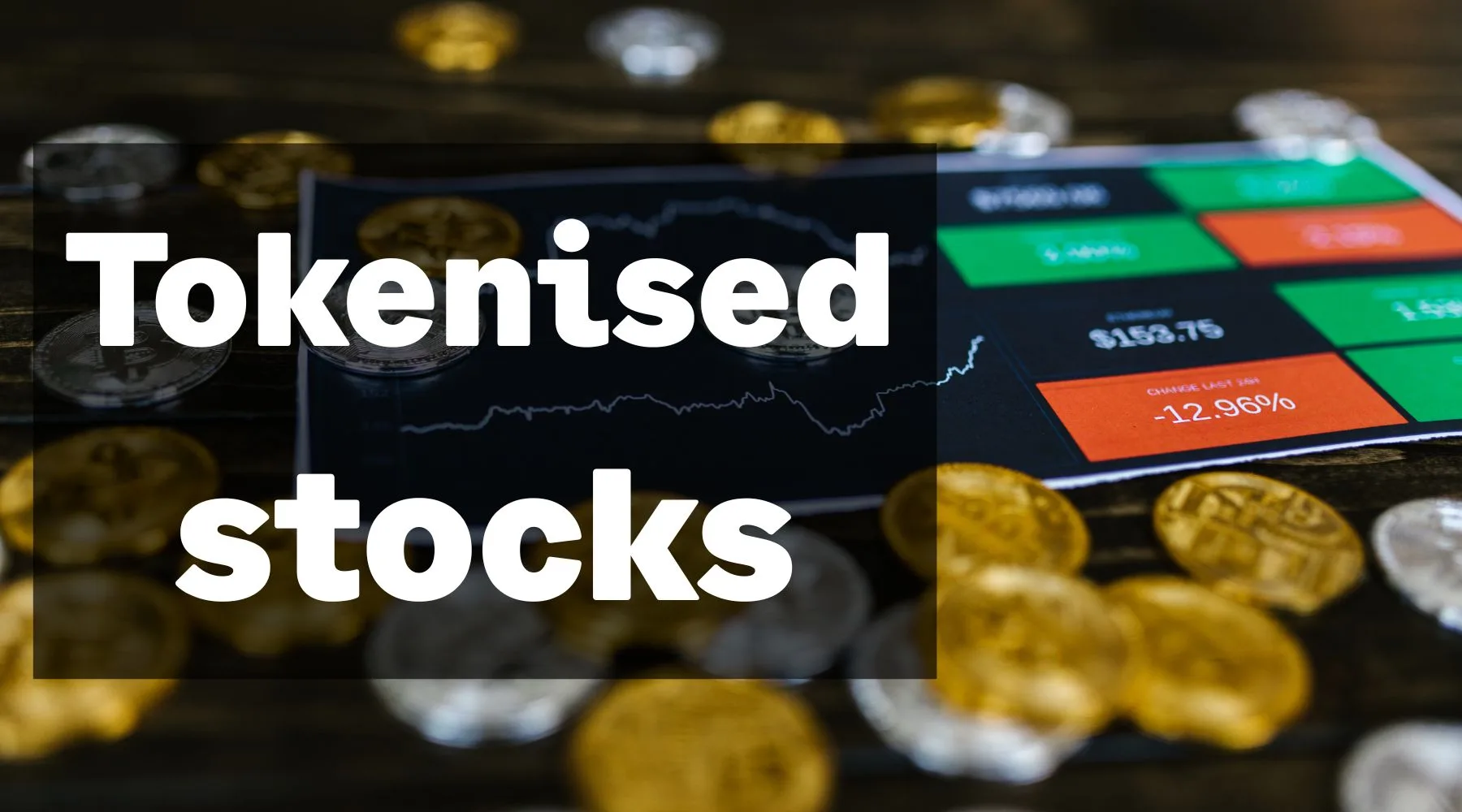Stock tokens have landed: What it means for Australian investors

Tokenised stocks have officially gone mainstream, with big-name platforms Robinhood, Kraken and Bybit launching their own offerings.
For Australians, that means it might soon be possible to buy fractions of top global stocks like Apple, Tesla, and Nvidia without needing a traditional stock broker.
What are tokenised stocks?
Tokenised stocks first emerged as a concept several years ago.
The basic idea is to use blockchain to create digital versions of real-world shares. This approach promises round-the-clock trading, fractional ownership, and faster settlements than traditional exchanges.
Every token represents actual shares securely held by a custodian, so their value mirrors the underlying stock. Investors can move these tokens off the exchange into private crypto wallets or even use them in decentralised finance (DeFi) applications.
In the last few days we've seen some major crypto and investment platforms including Robinhood, Bybit and Kraken, announcing the launch of tokenised stocks, marking a significant step toward mainstream adoption.
What's happening now?
The show stealer is US trading platform Robinhood, which has just launched stocks and ETF tokens to the European market.
Notably, Robinhood has also said it plans to make private company tokens available, potentially opening the door to investments in companies like OpenAI and SpaceX. Shares in private companies are usually only available to high-net worth or institutional investors.
Kraken and Bybit have also introduced tokenised equities, called "xStocks" through a partnership with blockchain specialist Backed Finance.
Kraken’s tokens run on the Solana blockchain while Bybit has also integrated xStocks into its platform.
BREAKING: Wall Street is officially onchain.
xStocks are now live on Kraken ❎60 U.S. equities tokenized and tradable 24/5. More coming soon.
We’re not waiting for the future. We’re building it.👇https://t.co/iKu44ZiwZN
Not available in the U.S. or to U.S. persons. Geo… pic.twitter.com/FjOsxDJ9se
— Kraken Exchange (@krakenfx) June 30, 2025
A new beginning for the future of finance. It’s almost time to Catch a Token.
Tune in as we livestream in Cannes, France to make our biggest crypto announcements of the year.
Live today at 5:00pm CEST/11:00am ET. https://t.co/g2tVe85G4W pic.twitter.com/3i7UDua2Gz
— Robinhood (@RobinhoodApp) June 30, 2025
Can Australians access tokenised stocks?
Not through a regulated exchange and the rest depends on regulators.
Kraken’s stock tokens aren't yet available to Australian investors and they have stated in a conversation with Finder "there is no planned release date."
Meanwhile, Robinhood doesn't operate in Australia and its tokenised stock trading is limited to European markets for the moment.
Bybit, although accessible from Australia, is not regulated by AUSTRAC, meaning it does not meet strict local regulatory compliance requirements.
It's worth nothing that Australian regulations around security backed crypto assets are relatively unclear and could change over night.
But if tokenised stocks are to be classified as "financial products" in Australia, they may only eventually be accessible through an exchange that holds an AFS license under ASIC regulations.
What's coming next?
The Australian Securities Exchange (ASX) is actively exploring blockchain through its Synfini platform, suggesting we could soon see more locally-focused tokenisation projects.
We might even see tokenised assets like gold begin trading on the ASX.
As this space grows, expect additional platforms and a wider range of investment options.
Whatever happens, it's an exciting shift that should ultimately give everyday investors better and easier diversifcation opportunities.
As always, make sure you understand the risks, stay within regulatory guidelines, and trade only on reputable platforms.
Sources
Ask a question
